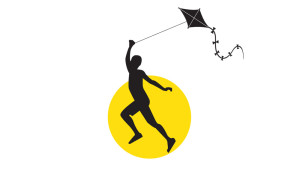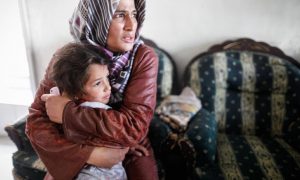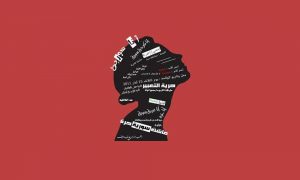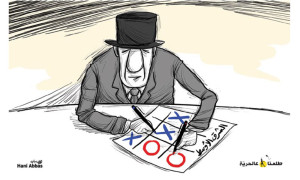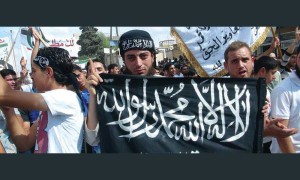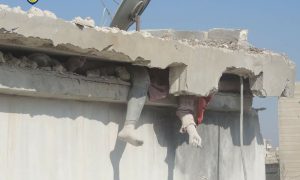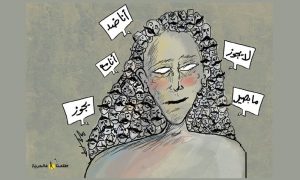Editorial, Issue 53
“Israel” has triumphed and established its state over the pains and wounds of the displaced Palestinian people. In the same way, the Syrian regime tries to triumph by displacing the Syrians all over the world and then it would declare that the Homeland “is not for those, who live in it, but for those, who defend and protect it.”
The Zionist Movement used force to transform its legendary slogan “A land without a people for a people without a land” into a “legitimate” reality. In the same way, the Syrian regime has worked to achieve its new legend and transform Syria into a homeland for the tyrants.
Hopes and desires do not succeed in breaking down this formula, nor are they enough to have the people trust history and the unseen justice. What is, in fact, working, is the actual act of the people that meets their needs and requirements. “It is the people, who make their own history, but they do not make it the way they wish.”
The questions to ask today are: Why until today, the Syrian revolution could not win the battle of legitimacy either internally or externally in spite of the high price, paid for that? Why the leaderships of this revolution could not attract international support for this suppressed people, or at least attract wide popular categories at the local level?
In this issue, many of our writers try to tackle these questions either theoretically or practically. We will try to focus on the subjective factors of this failure, without ignoring the international factor, conspiring against our dreams.
The writer Majed Kayyali tries to list the obstacles in the road of the Syrian revolution, criticizing the fragmentation of the revolutionary and political factions that lack organization. Our reporter Abu el-Qassem el Suri in Syria exposes the latest attempts to establish a general civil, military and political leadership in the besieged Eastern Ghouta that is supposed to see light any time soon.
In an essay under the title “Terrorist Revolutionaries”, Shawkat Gairziddin talks about the contradictions of the revolution and the interrelation between the revolutionary and terrorism of the organizations that imposed themselves on the land and people. “They are revolutionaries because they work on changing the status quo in Syria and fight for toppling the regime. But they are also terrorists because they administer the areas they seized with “brutal administration”, and found for an internationalist Islamist alternative.”
Under the title, “Fascism and Alienation in Syria”, Maher Masoud says that the Syrian are escaping freedom, whether those, who are under the control of the regime or those under the control of the extremist organizations. “Everyone is trading his freedom for security. What can be harder than this, what can be more alienating and inhuman than trading freedom for security?”
In his essay, “The Political incumbent of the Revolution and the lost Respect,” Fadi Mohammed criticizes the complete separation between the revolution and the external political incumbent, a phenomenon that has never been witnessed in any other revolution. The leaderships of the other revolutions were able to achieve respect for their revolutions because they themselves were representatives of their people. “It was part of them, leading them and taking part in paying the required price for change.” However; the political incumbent of the Syrian revolution has lost that respect because they separated himself from the people. “The separation was sharp, distinguishing between the pains of the people and the luxurious life the “political incumbent” are enjoying.” He added that “When the political incumbent of the revolution is worth respect, they are then capable of being a counterpart that is accounted for.”
Our 53rd issue also includes a variety of pictures, cartoons, articles and important reports that there is not much space to discuss here. We wish all our readers a good read.

Syrian writer, journalist and activist; RFM Chief Editor
The Occupied Golan Heights




